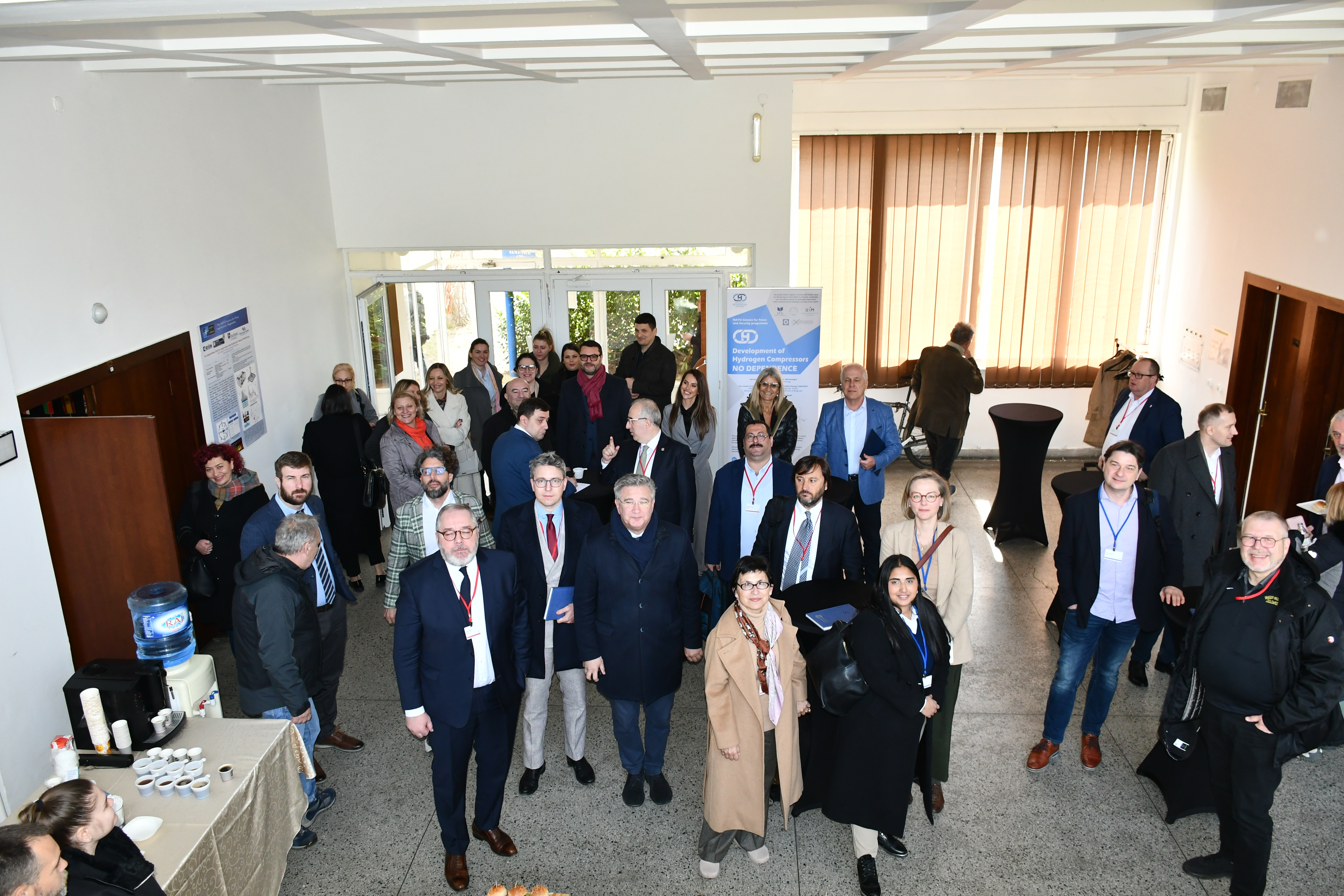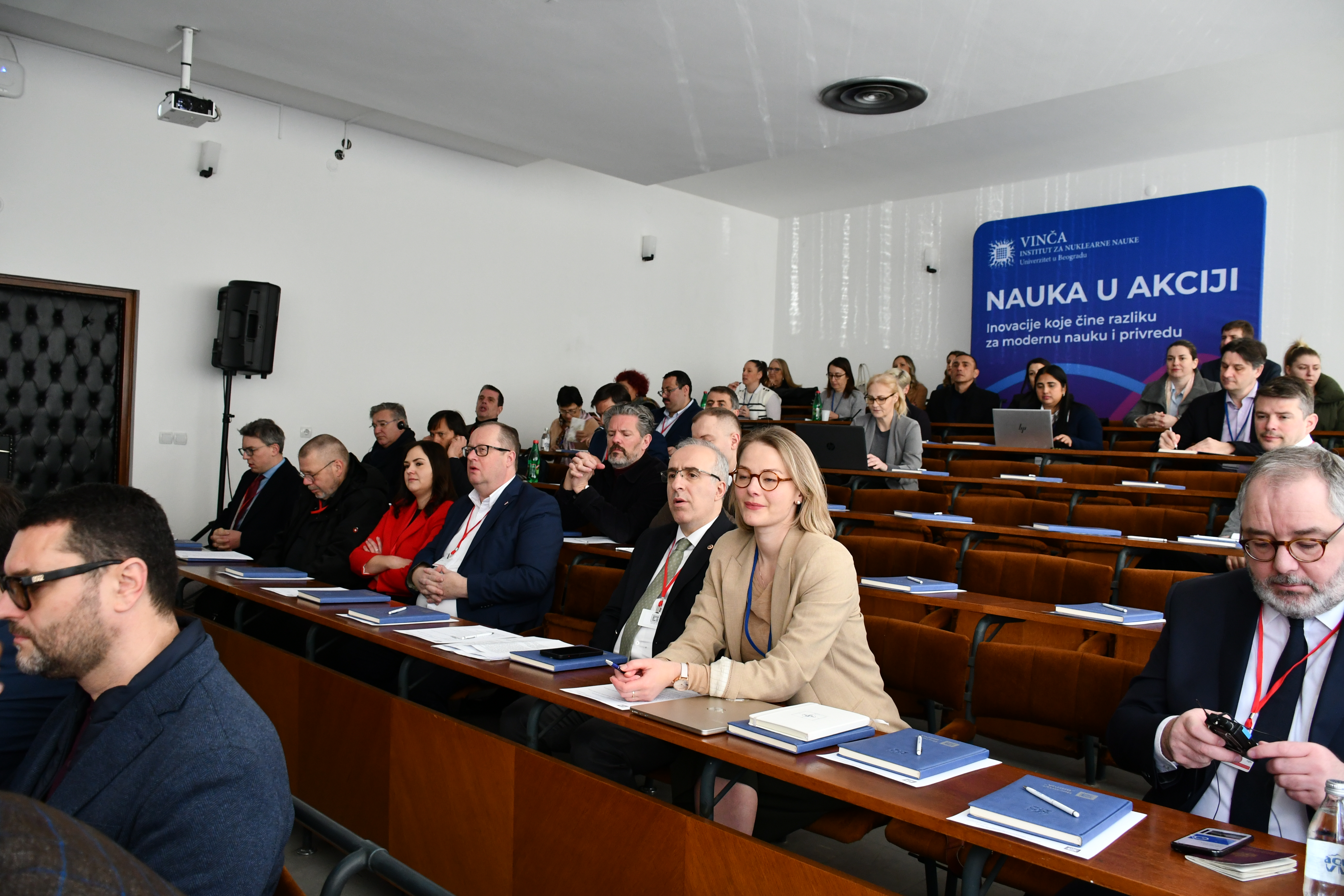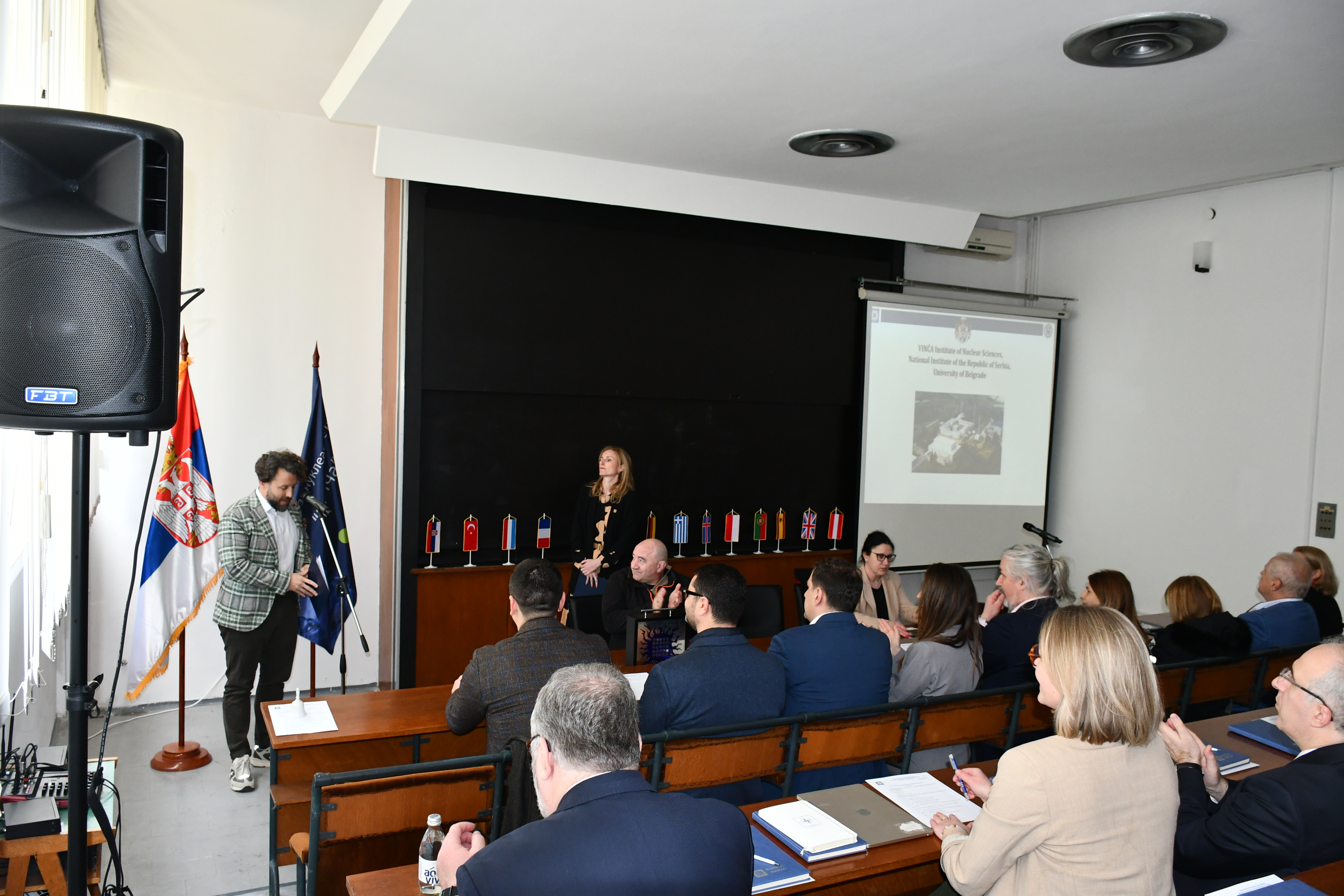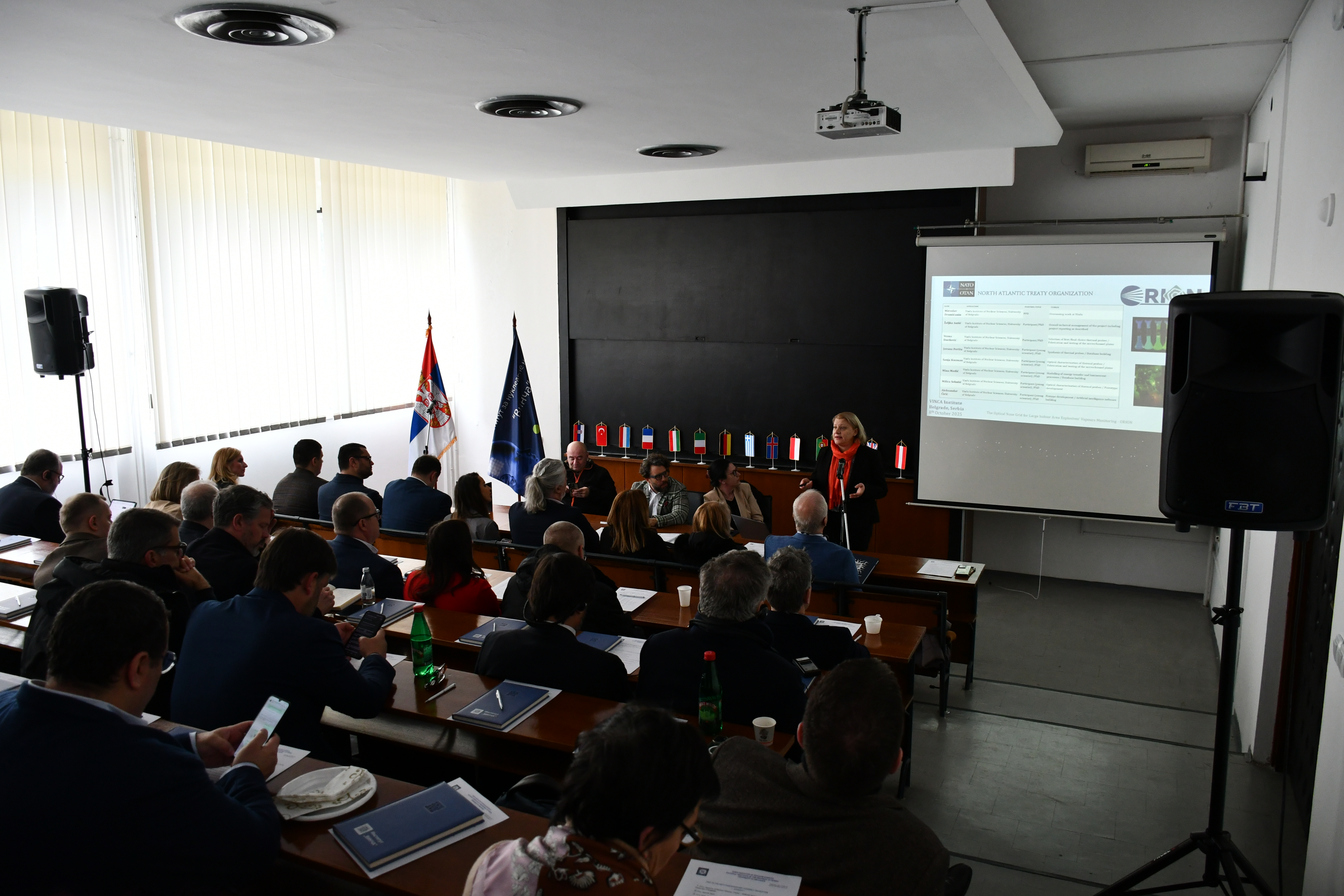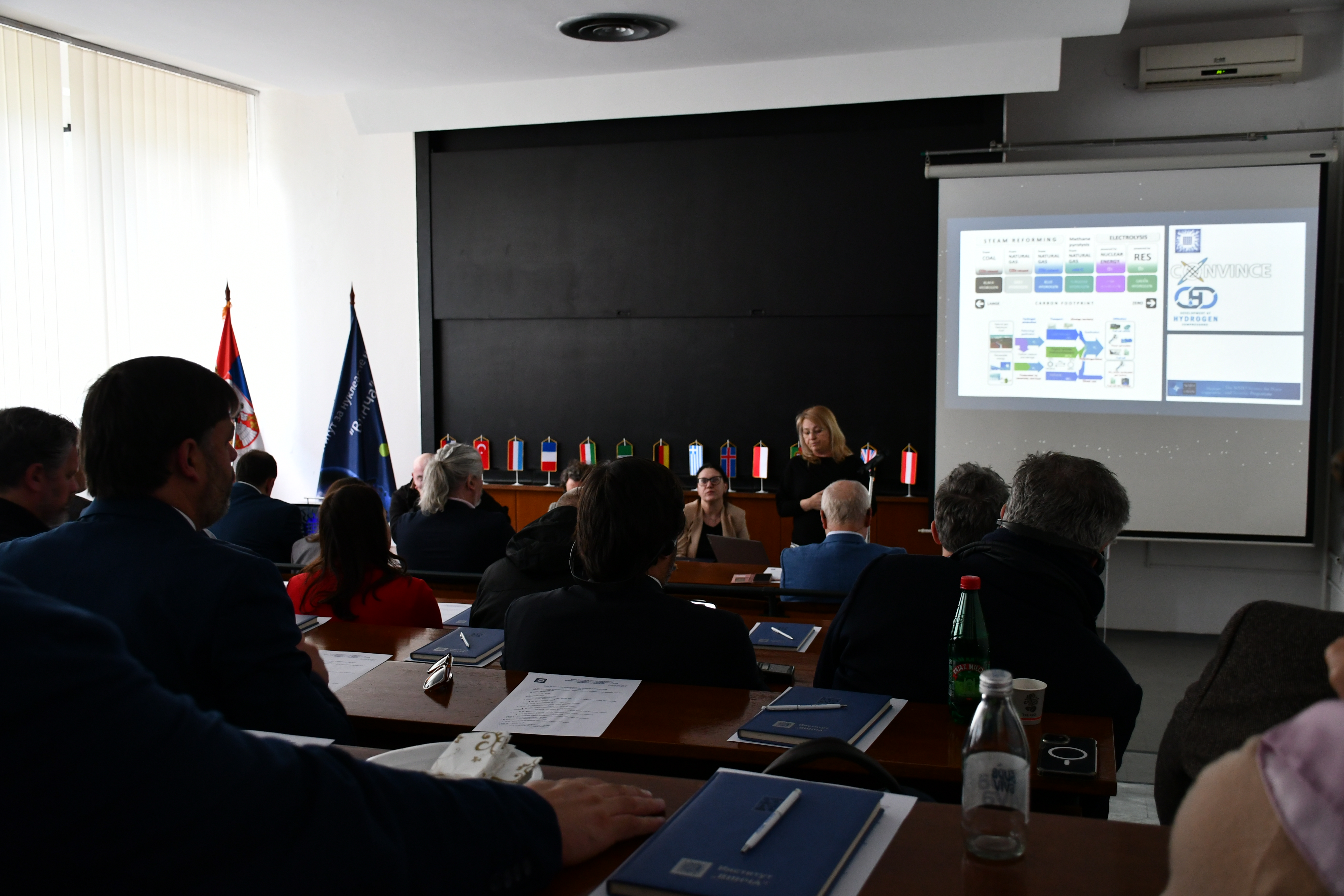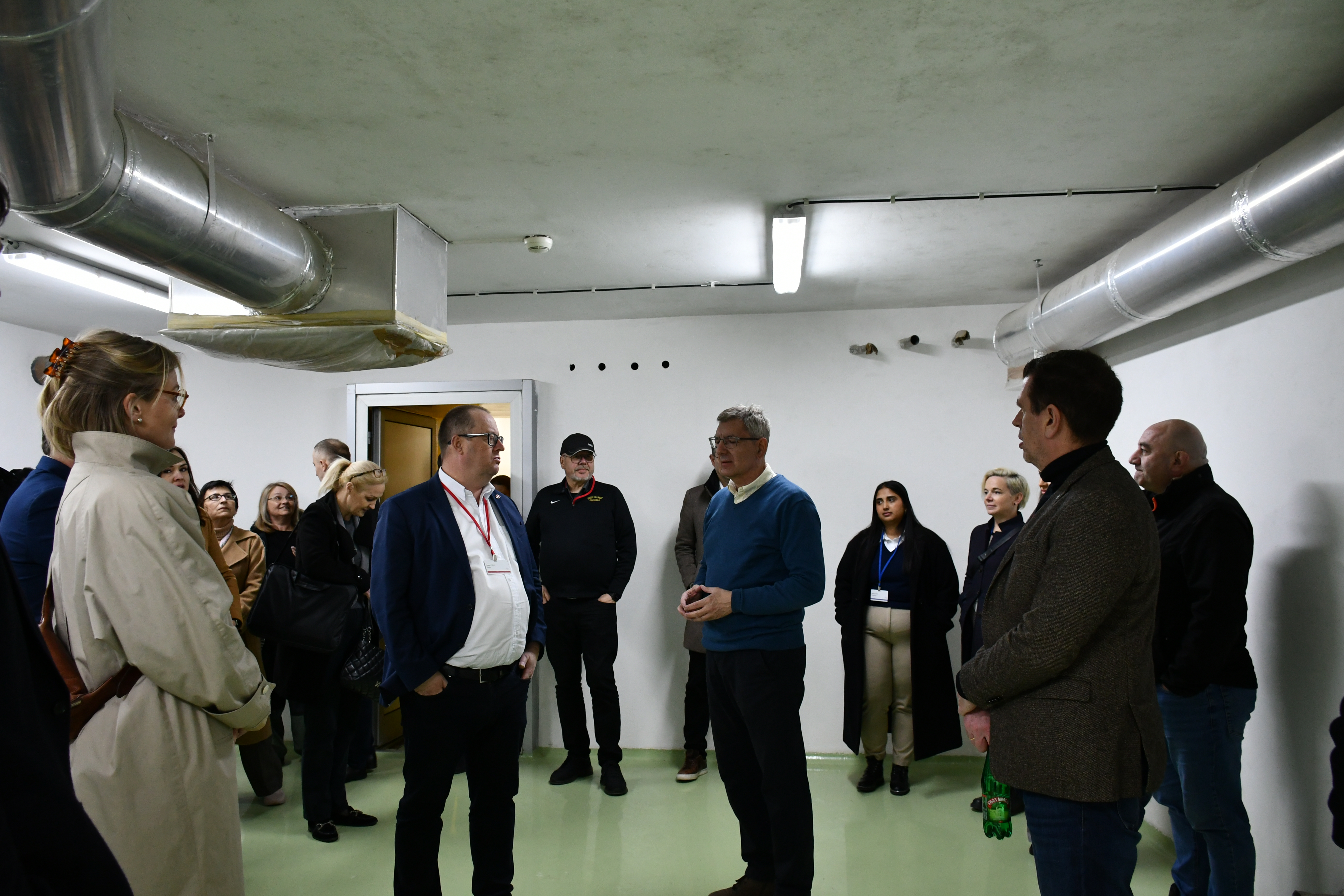The NATO Parliamentary Assembly visited the Republic of Serbia on April 7 and 8, 2025.
The Vinča Institute of Nuclear Sciences had the honor of hosting the delegation members and presenting ongoing and completed projects within the NATO "Science for Peace and Security" (SPS) program.
In his welcoming speech, Dr. Slavko Dimović emphasized that "science knows no borders" and that partnerships based on trust, transparency, and common goals can have a far-reaching impact.
"Through joint research and open communication, we build not only knowledge but also resilience—thereby strengthening our ability to respond together to contemporary global challenges," stated Dr. Dimović.
During the program, Dr. Marija Janković, Deputy Director, presented the history, mission, and key activities of the Vinča Institute, highlighting its strategic role in the national scientific and research system.
The presentations primarily covered activities conducted under the NATO "Partnership for Peace" and "Science for Peace and Security" programs. Dr. Vesna Đorđević presented a project on the development of an optical network for the detection of explosive vapors in large indoor spaces, while Dr. Milovan Stoiljković spoke about the "EXTRAS" project, which focuses on explosive detection and preventing terrorist attacks within the STANDEX security system.
Dr. Jasmina Grbović Novaković presented an ongoing project on the development of hydrogen compressors, which represents a significant contribution to sustainable energy solutions. In her presentation, she highlighted the technical complexity and broad applicability of the technologies the Institute develops in line with international standards.
The discussion with the delegation members was moderated by Prof. Dr. Zoran Dragišić, Head of the Permanent Delegation of the Republic of Serbia to the NATO Parliamentary Assembly. On behalf of the delegation, Vice Chairman of the Committee on Science and Technology, Mustafa Kaja, addressed the attendees, expressing gratitude for the warm hospitality.
The visit concluded with a tour of the Physics Laboratory, where the delegation members explored the Institute’s research infrastructure, including the FAMA center and the "small cyclotron." They were also introduced to the Institute’s capabilities in the fields of materials science, renewable energy sources, and strategies aligned with national priorities.
The visit confirmed the role of the Vinča Institute as a relevant and reliable partner in international cooperation in the fields of science, security, and technological development.



